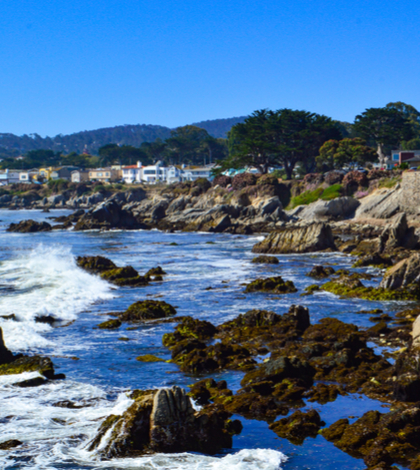The Monterey Peninsula Water Supply Project, a desalination project on the coast near Monterey, won the approval of the California Public Utilities Commission (CPUC) earlier this week. The project, estimated to cost $329 million, will protect the community from the effects of future droughts by creating a sustainable water supply without relying on rainfall or groundwater.
California American Water (Cal Am), a publicly traded utility company, is expected to complete the project by 2021 – ahead of the state mandated deadline of Dec. 31, 2021. “Yesterday’s approval brings us closer to solving the Monterey Peninsula’s water supply issues,” said Rich Svindland, CAW president. “It is a huge step forward towards establishing a sustainable water supply that will meet the community’s water needs and protect the Carmel River.”
Currently the Carmel River supplies the region with the majority of its water. The Monterey Peninsula Water Supply Project, a project to replace over 70 percent of the service area’s water supply with a 6.4 million of gallons per day (MGD) desalination plant, also includes over 20+ miles of main, increased aquifer storage and recovery and a 3,500 acre-feet per year (AFY) groundwater replenishment component using recycled water purchased from the Monterey Regional Water Pollution Control Agency and the Monterey Peninsula Water Management District.
The Monterey Peninsula Water Supply Project is now looking for the Coastal Commission’s approval of a coastal development permit for the desal project within the next six months and a project completion date. An environmental review conducted this year by the CPUC and the Monterey Bay National Marine Sanctuary found the project to be the least impactful and most environmentally beneficial way to address the area’s water shortage.
In contrast to “open ocean” intake systems, the Monterey Peninsula Water Supply Project will feature “slant wells,” — groundwater wells drilled at a 15-20% angle. Slant wells draw water from underneath the sea floor along the coastline and are reported to virtually eliminate any harm to sea life.
CPUC Commissioner Liane Randolph stated that, ““This decision puts the Monterey Peninsula on the road to water security with water that will be safe, reliable and protect the community from drought. (The Cal Am project) … does so with protections for ratepayers against unreasonable costs and protections of the environment while providing Cal Am with the best opportunity to meet its customers’ needs at just and reasonable rates. We encourage Cal Am to continue to consider alternatives, but not as a replacement for this project.”
 California Water News Daily Your Source For Water News in California
California Water News Daily Your Source For Water News in California


